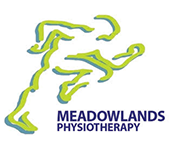Running: How Much is Too Much?
We hear so often about people who don’t get enough exercise. Everyone knows that it’s bad for your health to be a couch potato, but we often don’t recognize that it’s also harmful to overwork your body.
At a certain point, you’re no longer gaining health benefits from running. According to Active, research suggests that you won’t experience a health boost from running more than six days a week, or more than 32 kilometers in that week. Speed is also a factor. Research suggests that you won’t experience increased cardiovascular benefits once you’re running faster than 12 kilometers an hour.
Of course, health isn’t the only reason we run. Most runners do it because they love it. You may not be getting health benefits when you beat these milestones, but you may not be actively hurting yourself either. How do you know where do you draw the line?
How to Know if You’re Running Too Much
According to the experts that Competitor Running spoke to, a key sign that you’re running too much is that you’re fatigued and plateauing. Of course, you have to put yourself through some degree of stress to improve, but if you find yourself tired all the time, you’re overdoing it. And if you hit a brick wall that you can’t pass, it may be that you’ve hit a physical limit that could be dangerous to pass.
To avoid running too much, the experts suggest that you should not do intense running for more than an hour at a time. You can’t hold a conversation during this “intense” running. After an hour of hard running, do another activity that’s less strenuous on your heart.
Also, be sure that you’re giving your body a rest for more than a day. Mike Hamberger, a sport psychology instructor, told Competitor Running that he schedules his athletes a full week off intense running every four to eight weeks. In that time, they might jog, do low intensity activities, and be idle for at least two of the days.
Running Injuries Might Mean You’re Running Too Much
While there are many causes for running injuries, including using the wrong form, building intensity too quickly, wearing poor footwear, or your anatomical structure, sometimes even minor injuries are a sign you’re running too much. In fact, elite athletes often develop specific health problems, like “athlete’s heart.” This thickening of your heart walls is dangerous. If you’re concerned about it, get a doctor to run an MRI, CT scan or echocardiogram.
Other injuries that are a cause for concern include:
- Patellofemoral pain syndrome (PFPS)
- Shin splint
- Stress fracture
- Achilles tendinopathy
- Plantar fasciitis
Also, if you or someone you know refuses to break even during serious injuries, you could have an exercise addiction, which needs to be addressed to prevent long-term impacts on your health.
How to Recover from Running Too Much
If you’ve been running to the point of injury, fatigue, or undue stress, your doctor and physiotherapist can work in conjunction with each other to come up with a plan to get you healthy again.
This plan might include:
- Rest to allow your body to heal
- Biomechanical education to improve your form
- Taping for short-term relief
- Massage or manual therapy to prevent and treat injury
- Stretching to prevent and treat injury
- Medications like over-the-counter or prescription anti-inflammatories
At Meadowlands Physiotherapy we love helping runners get over their hurdles and back outside. We can help you gauge whether you’ve been running too hard. If you have, we have strategies that can help you get back on track. Contact us today.

